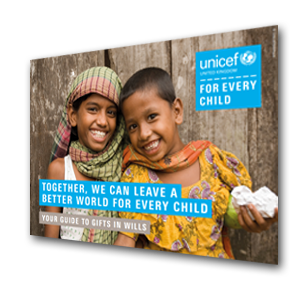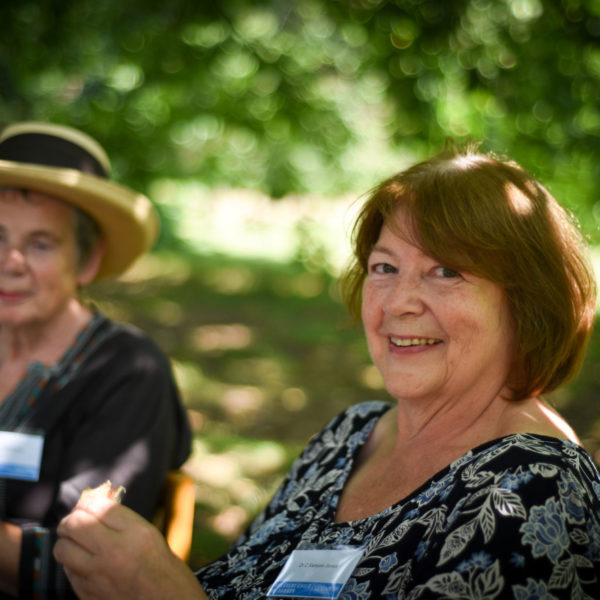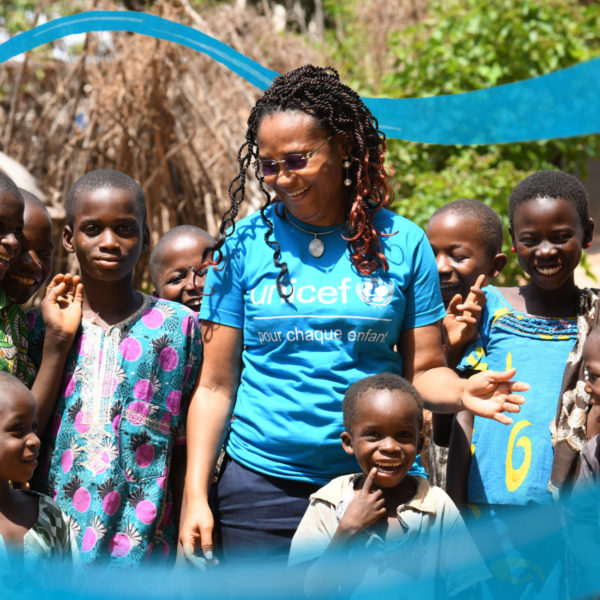Meet Daniel,
Emergencies Specialist
“We just haven’t seen anything like this before.”
Written by: Lucy Brazier, Campaign Stewardship Officer, Gifts in Wills
Meet Daniel Walden, our Senior Emergencies Specialist. He kindly spared some time out of his pressured schedule to chat to me, on a virtual call, about how we are dealing with the coronavirus crisis… whilst trying to keep pre-existing programmes going for children.
UNICEF is dealing with the biggest global crisis for children since World War Two.
Read my interview with Dan to hear directly why this requires an unprecedented crisis response.
Let me introduce Dan; our “Go-To Man” in a crisis
Dan has worked for children facing crises all over the world. He is our “go-to-man” for all the correct and most up to date information when emergencies happen.
He and his team are in regular contact with global UNICEF staff overseas about the coronavirus crisis. They run training sessions and are on hand to answer our questions as we share information with our supporters.
Lucy: “Dan, what’s a typical day like in lockdown for you?”
Dan: “Er, well. I start by getting up and doing some yoga and then I eat my porridge on the balcony. I usually start work at 8:30…. Then it’s a day of calls with the global organisation, supporters and colleagues. I usually finish around 6:30.
(He starts to laugh)…if I’m feeling really wholesome I may go for a run. But most the time I have A LOT of Zoom calls with family and friends and watch some rubbish TV.”
Lucy: What do you miss most about being in lockdown?
Dan: “Seeing people, friends and family. I’m really missing my uncle duties.”
Lucy: What is UNICEF’s role in dealing with the global crisis?
Dan: “UNICEF is central to the global response to the coronavirus crisis. We are right at the frontline, working hand-in-hand with the WHO, governments and other partners on saving lives and minimising the impacts of this pandemic.
We’re co-leading on two areas of the global emergency response – namely, getting supplies such as PPE, medical and sanitation equipment to the people who need them; and risk communication – making sure that children and families have the information they need about the virus and about what to do to prevent its spread.
I have to point out that we are not dealing with a normal crisis response… instead we are dealing with a crisis in extraordinary circumstances. Our global family, across more than 190 countries, is working to find solutions to logistical and operational constraints caused by lockdown.”
Lucy: Why is this such an unprecedented crisis response?
Dan: “UNICEF has over 70 years’ experience in dealing and managing crises in highly complex operating environments…. But we just haven’t seen anything quite like this before. This is the biggest global crisis for children since World War Two.”
Dan becomes animated (gesturing with his arms) and goes on to explain, “Firstly… the sheer scale of it is immense – it’s almost everywhere, all at once.”
Dan continues, “Secondly… we are dealing with unusual lockdown restrictions whilst trying to deliver a major emergency response. There are supply and logistical issues. People aren’t allowed to stand too close together, much less cross borders. And we are all having to work from home – so it’s a whole new approach to emergency management for everyone. For example, in Yemen we have had to devise a way for families to be physically distanced as they collect their hygiene kits containing essentials such as soap, buckets and sanitary pads. (You can see a picture of how it has had to be arranged below right.)
Thirdly … many of our business as usual programmes for children are under pressure as lockdown and other response measures prevent us from being able to provide or support services that many of the world’s most vulnerable children rely on every day.”
Lucy: How big is the scale of the operation?
Dan: “To give you an idea of the scale of the supplies we need to source…our supply division last year procured just over 400,000 surgical masks. In March, this year, the need for masks rocketed to 7 million per week!”
(Dan rolls his hand through his hair) “… And, of course, we are not the only ones trying to source and purchase the masks.”
Lucy: Besides the threat of coronavirus itself, how else is this crisis impacting children?
Dan: (Dan pauses and looks thoughtful) “….It makes an already difficult humanitarian situation in counties like Yemen, Syria and the DRC even worse…”
Dan explains that it’s not just about protecting children from the virus itself (malnourished children are at higher risk of severe impacts, including death) but that the lockdowns have a hidden negative impact on children…
“…social distancing requirements mean some children can’t get their vaccinations. Making the risk of diseases like measles higher.”
UNICEF estimates that six thousand children could die every day as coronavirus weakens national health systems and disrupts vital services.
“…some families in lockdown are facing the conundrum of being infected by coronavirus or going hungry.
…The lock-down is depriving children of schooling … the already most marginalised and poorest children in the world are at risk of falling further behind… and may more likely be forced into child labour or early marriage.”
Lucy: How long will UNICEF need to continue dealing with the crisis?
Dan: “This is not just an immediate crisis response. (Dan pauses and looks serious)… there is a very real risk of long term impact on children’s lives, all over the world.”
Lucy: Is UNICEF doing anything in the UK for children?
Dan: “Yes. Our work with schools, neonatal units and local authorities in the UK has had to flex and adapt to the changing situation… Our UK programmes teams are working hard to make sure that we are there for those who need us.”
“…We have just released a rapid assessment which looks at risks for children in the UK … There are some clear actions we would hope the government would take.”
Lucy: What is the best way people can support?
Dan: “There are many ways to support. You can choose to donate or another really important way to help is to make sure you only share reliable information about coronavirus, especially online.
Finally, one way that many supporters choose to help UNICEF respond to crises like this, is by including a gift to Unicef UK in their will. These large, unrestricted gifts allow us to react quickly to future unexpected crises situations.”
Lucy Brazier works as part of the Gifts in Wills Team at Unicef UK. Every year, UNICEF does more good for more children, in more places, than any other organisation. We believe every child has the power to change the world.
Our goal is to empower future generations of children by supporting long-term development. If you feel inspired to support Unicef UK with a gift in your Will, please request your copy of our Gifts in Wills Guide




